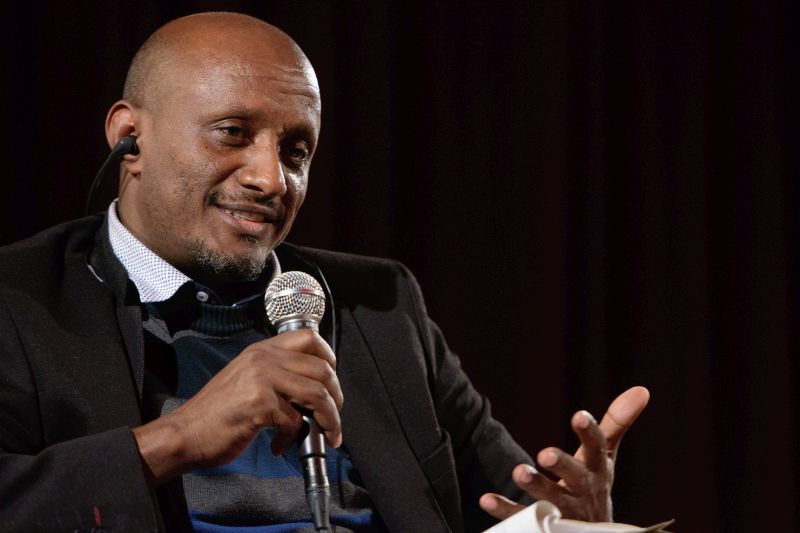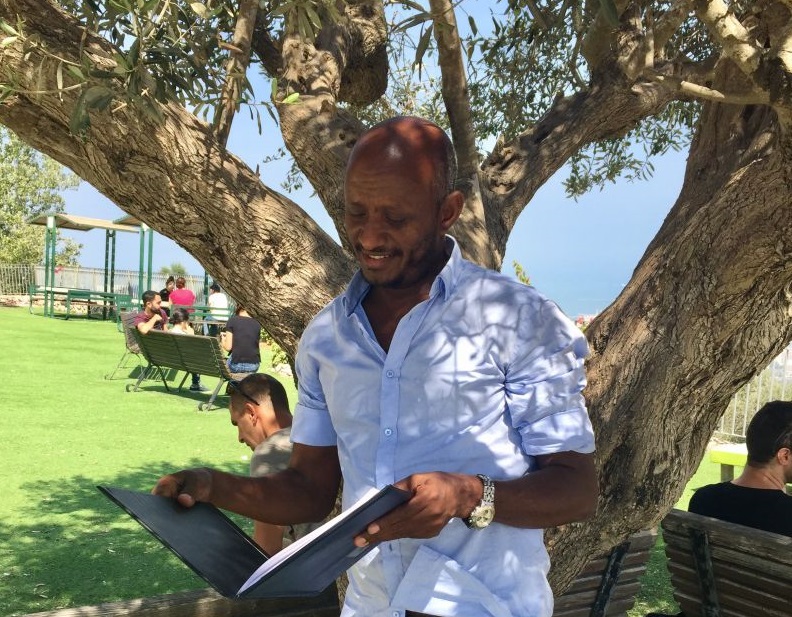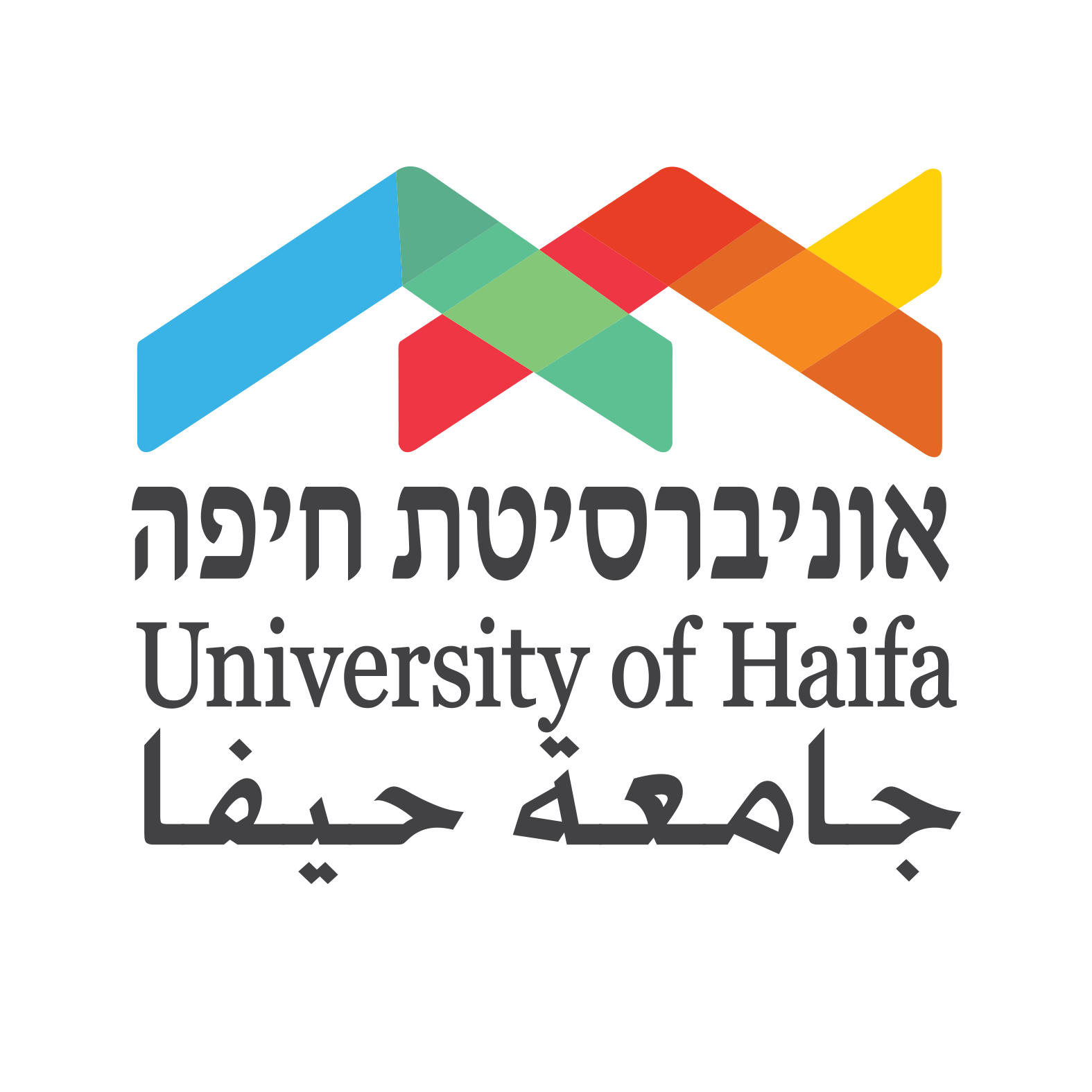
Dr. Germaw Mengistu at the German–Israeli Literature Festival, held at the Goethe-Institute in Berlin.Photo: Stephan Röhl
Building bridges for social transformation one word at a time
Dr. Mengistu completed his undergraduate and graduate degrees at the University of Haifa, earning his PhD in communications in 2016. His award-winning story, “A Dream at the Price of Honor,” was recently added to the national literature curriculum – the first work on Ethiopian Jewry to be taught in Israeli public schools.
When did you first start writing?
G.M. - As long as I can remember, I have held a book in my hand, even before I knew how to read. My father, a devout man who always carried a prayer book, had liberal ideas and dreamed of sending all of his children to school. Out of all my siblings I was the lucky one to be sent to school, a privilege for a boy born in a remote Ethiopian village far from the big city. From a young age I loved language and writing. I am fascinated by how words strung into sentences can create so much meaning – they have the power to delight and comfort, provoke and even start revolutions. Over time, I have come to understand that in the world today, those in control of text can define their truth and in so doing create new realities that can shatter myths, build bridges between people and bring about change.

“I am fascinated by how words strung into sentences can create so much meaning –
they have the power to delight and comfort, provoke and even start revolutions.”
-Dr. Germaw Mengistu
Favorite spot on campus – the Rieger Café and Garden.
How did you react when you found out “A Dream at the Price of Honor” was added to the national literature curriculum?
G.M. - I was of course delighted and honored, not only for the recognition of my talent as a writer, but also for the interest in the heritage of Ethiopian Jewry, which up until now has been underrepresented in the national curriculum. I believe that the story is an important piece of the social mosaic of the Jewish people in Israel. “A Dream at the Price of Honor” describes the heroic journey and emotional arrival to the Promised Land from the point of view of elders of the community, in an attempt to shed light on Ethiopian faith and customs. Ethiopian Jewry is a proud community whose strong Jewish beliefs withstood the test of time throughout the ages, despite persecution, just like other Jewish communities throughout the world.
What do you hope to accomplish through your writing?
G.M. - I hope that it will trigger the creation of more literary works on Ethiopian Jewry. Most young Israelis do not know much about the Ethiopian community. This story offers a glance into its rich culture and heritage. For young Ethiopian ‘Sabras’ who have up until now only studied the histories of European and Middle Eastern Jewry at school, these stories act as a link to their Jewish roots, to characters and places they can relate to. By teaching about our own community and learning more about our own history, we can bring about change, dispel myths and build bridges between communities for a more just society.
Memories from the University of Haifa
G.M. - The stunning views from the Haifa campus, set high on the Carmel mountain range, reminded me of my childhood home. It was among the first academic institutions in Israel to offer academic opportunities to Ethiopian-born students, as well as assistance in adjusting to campus life. Many of my fellow graduates who studied here have gone on to hold key leadership positions.
I completed all three of my degrees at the University and loved studying here. Early on I was involved in the Student Union, it was during the time that Prof. Ron Robin was the Dean of Students. He helped us launch services for economically disadvantaged students to ensure they could afford decent meals. Thanks to generous supporters, I was given subsidized dorm room accommodations and received two very generous scholarships, from the Polonsky Foundation in the UK, and the Allen Family in the US. I would like to offer my sincerest thanks to these two dear families. For me, your support has been more than financial – your faith in me helped me believe in myself and inspired me to achieve my goals. I will always be extremely grateful to you for that!
What are your plans for the future?
G.M. - I hope to start my post-doctorate fellowship in the near future at the Elizabeth and Tony Comper Interdisciplinary Center for the Study of Anti-Semitism and Racism, headed by Prof. Eli Avraham. I would like to continue investigating communication for social change.
Honoring the Legacy of Israel’s Ethiopian Community
The Story of the Ethiopian Community Project, a unique undertaking that is digitally recording and documenting Jewish folklore from Ethiopia, is about to release a new book, Two Thorns do not Join. A collection of 50 folktales, the Project aims to create a direct dialogue between academics and the Ethiopian community and shed new insights into Jewish life in Ethiopia, immigration to Israel and integration into Israeli society.
The Ethiopian Collection is part of The Israel Folktale Archives named in honor of Prof. Dov Noy, housed at the University. Led by Dr. Haya Milo from the Faculty of Humanities, the Project is generously supported by the Polonsky Foundation and the National Council of Jewish Women of Australia.

